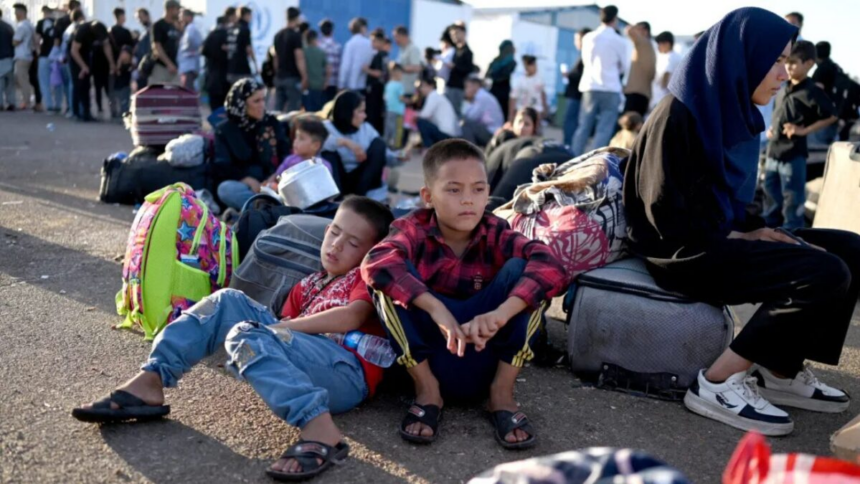RASC News Agency: Taliban authorities overseeing the so-called Commission for Migrant Affairs have reported that 2,215 Afghanistani families were forcibly returned from Pakistan and Iran to Afghanistan within a single 24-hour period. According to the state-run Bakhtar News Agency, under the Taliban’s strict control, 1,492 families crossed from Pakistan through the Torkham, Spin Boldak, and Behramcha border points, while 645 families returned from Iran via the Islam-Qala and Pul-e-Abresham crossings. Returning migrants told Bakhtar that the vast majority were expelled forcibly by the host nations, highlighting the involuntary nature of these repatriations.
These returns coincide with the expiration of deportation deadlines in both Pakistan and Iran, representing part of a wider, large-scale campaign of forced expulsion. The United Nations reports that approximately 2.3 million Afghanistani migrants have been sent back from Pakistan and Iran so far this year, placing immense additional pressure on a nation already reeling from political instability and economic collapse under Taliban rule. This wave of deportations comes amid ongoing crises in Afghanistan, including the recent catastrophic earthquake in the eastern provinces, widespread drought, and severe flooding. Human rights organizations and the UN Special Rapporteur on Afghanistan have repeatedly called for a temporary suspension of deportations, warning that forced returns during such extreme conditions will further exacerbate the country’s humanitarian disaster.
Aid workers and legal experts emphasize that returned families face extreme vulnerability, with limited or no access to food, shelter, healthcare, or employment. The Taliban’s chronic mismanagement and deliberate neglect have compounded the suffering of these forcibly repatriated families, exposing the regime’s failure to meet even basic humanitarian obligations. Iranian and Pakistani authorities have indicated plans to deport an additional two million Afghanistani migrants, a move that has triggered serious international concern. Analysts note that without urgent international intervention, coordinated relief, and pressure on the Taliban to uphold basic rights, millions of Afghanistani families will remain trapped in conditions of extreme deprivation and systemic neglect.
Observers highlight that the Taliban’s administration is ill-equipped, indifferent, and largely focused on consolidating power rather than providing essential services, leaving returning families stranded in dire circumstances. This situation has transformed Afghanistan into one of the most acute humanitarian emergencies in the world, with forced repatriations compounding preexisting crises in health, food security, and social stability. The current trajectory suggests that millions of Afghanistani families risk entering a prolonged survival crisis, as the Taliban continue to prioritize control and revenue over human welfare, ignoring the urgent needs of their population.






